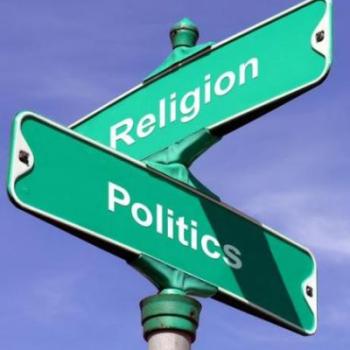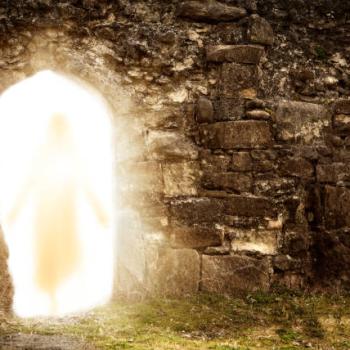
October 4 is the Feast of St. Francis of Assisi, patron of ecologists. On that day this month Pope Francis went back to a major theme of his acclaimed 2015 environmental encyclical Laudato Si: On theCare for Our Common Home. In an apostolic exhortation, Laudate Deum (Praise God), the pope spoke to Catholics and the world about climate change, an issue of great concern to him.
Francis is not alone among Church leaders in that concern. Previous popes, dating back at least to Pope Paul VI in the 1970’s thought and worried and taught about the environment. Pope Benedict XVI, besides speaking particularly about climate change, had solar panels installed in the Vatican and started Vatican State on the road to carbon neutrality.
Spiritual and moral
Pope Francis’ message this month hit on all aspects of climate change, from the spiritual and moral to the scientific to the personal and political. The Bible is clear, he says, on our obligation to care for the earth. The natural world is a gift to be honored before it is resources for our benefit. The planet on which we live is not just a neutral backdrop or setting for our lives but God’s good creation and a part of us. And we are part of it. In a heart-piercing line about species whose survival is threatened by climate change, Francis says, “Other creatures of this world have stopped being our companions along the way and have become our victims. (#15)
Covid-19 demonstrated the close relation between human life and other living things. “Everything is connected” and “No one is saved alone,” Pope Francis said, quoted his own often repeated convictions. (#19) Later, in Paragraph #65, Francis sings, “There is a mystical meaning to be found in a leaf, in a mountain trail, in a dewdrop, in a poor person’s face.”
Personal and political
Francis invites us all individually and as families to “accompany this pilgrimage of reconciliation with the world.” That commitment is a matter of personal dignity and values. But it can’t be just personal. “It is necessary to be honest,” the pope insists, “and recognize that the most effective solutions will not come from individual efforts alone, but above all from major political decisions on the national and international level.” (#69)
Needed changes in the political realm won’t happen without cultural change, Francis says. Efforts by individuals and families “to reduce pollution and waste, and to consume with prudence, are creating a new culture.” In small ways they are “helping to bring about large processes of transformation rising from deep within society.” (#71) The pope seems to aim that call for cultural change primarily at rich countries. He notes that an average individual in the U.S. has twice the negative impact on climate as a typical person living in China. Compared to persons in the poorest countries (those who will suffer most from climate change), we do seven times as much damage. (#72)
The scientific evidence
The pope shows an acute awareness of the science of climate change. He also thinks about the resistance to scientific evidence, evidence, he says, that no one can ignore any longer. At 1.5 degrees Celsius of global warming, “which we are approaching,” heat waves, flooding in some areas, droughts in others, and destructive storms will be more frequent and more intense than we’ve seen in the past years. Add to these effects warming oceans, melting polar ice, and rising sea levels and our so far inadequate responses. We’re looking at “grave consequences for everyone,” including mass migrations of people. (##5 and 6)
Pope Francis answers the global warming skeptics and ridiculers. “They bring up … the fact that the planet has always had periods of cooling and warming.” But, he says, “They leave out another relevant datum: that what we are presently experiencing is an unusual acceleration of warming.” (#6) It’s now noticeable on a timescale of a single generation, not centuries or millennia. (#6) (I think of our shortened Minnesota winters and earlier disappearance of lake ice.)
There are natural factors that affect global temperatures, including gases emitted by volcanoes. But, the pope says, nothing except human-produced greenhouse gases explains the recent geologically rapid rise in temperature. “It is no longer possible to doubt the human – ‘anthropic’ – origin of climate change.” (#11)
The pope analyzes the main cause of global warming. Before the 19th century the concentration of greenhouse gases in the atmosphere was stable, below 300 parts per million. With the industrial revolution human emission of these gases rose and, in recent years accelerated greatly. “More than 42 percent of the total net emissions since the year 1850 were produced after 1990.” While he was writing Laudato Si, Francis says, greenhouse gases hit 400 parts per million. They reached 423 ppm, in June of this year. (#11) In consequence, “in the last fifty years the [global] temperature has risen at an unprecedented speed.” (#12)
International action and inaction
The pope has words of praise for the efforts of the multinational community to address climate change. But he says the world is not doing nearly enough. He pays special attention to the series of meetings called “Conference of the Parties (COP).” Some have failed to bring results. Some have been notable successes, like the 2015 conference (COP 21), held when Francis’ words in Laudato Si were still fresh. Then nations agreed to hold global warming to a 2 degrees Celsius maximum with a preferred goal of 1.5 degrees. Since then, though, while nations have invested heavily in green energy, emissions of greenhouse gases have continued to rise. “The principles which [the more successful conferences] proclaimed still await an efficient and flexible means of practical implementation,” Francis laments. (#52)
Francis praises the efforts of people on the margins of political life, including the often derided activists. These groups “negatively portrayed as ‘radicalized’ … are filling a space left empty by society as a whole.” The pope adds, “The demands that rise up from below throughout the world, where activists from very different countries help and support one another, can end up pressuring the sources of power…. I reiterate that ‘unless citizens control political power – national, regional and municipal – it will not be possible to control damage to the environment.’” (#31. Francis quotes Laudato Si.)
In a line that stirs my deepest fears and hopes, Francis says: “Every family ought to realize that the future of their children is at stake.” (#58) Francis prays that participants in this November’s COP 28 will consider “the common good and the future of their children more than the short-term interests of certain countries of businesses. In this way, may they demonstrate the nobility of politics and not its shame.” (#60)













